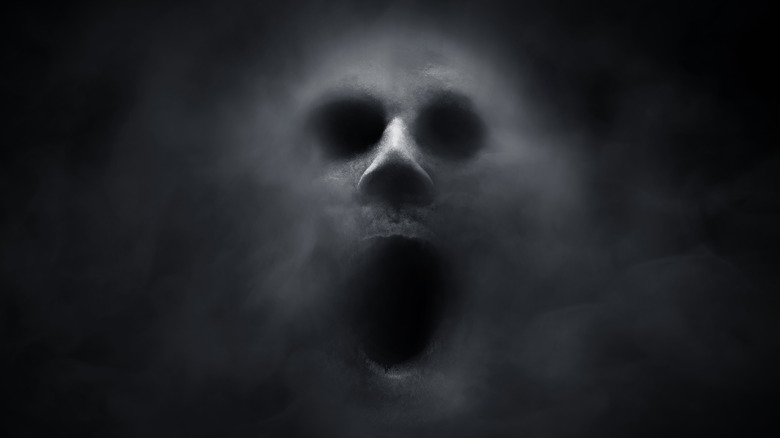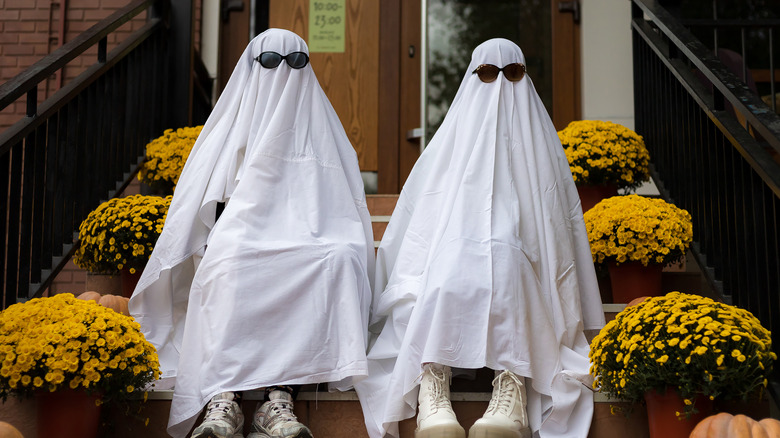The Reason Ghosts Say Boo
Ghosts have fascinated people for centuries. There are stories around the world about spooky specters, haunted houses, and ghostly encounters. Whether you believe in ghosts or not, you've probably seen the art, including movies and drawings, of a standard white figure shouting "Boo!" But where did that word come from, and why is it associated with ghosts?
The word "boo" isn't as old as the idea of ghosts, according to The Cut. It showed up around the 1400s as "boh." From there, it shifted to "boo" over the next few centuries. The combination of the loud "B" sound with the vowel makes it effective at startling almost anyone if done correctly, and it ended up as a key part of ghost mythology by the early 1800s (per Slate). It also shows up in some Scottish idioms, and has even been recommended as a way to frighten away birds like geese and swans.
How have ghosts changed over time?
The Cut cites the Oxford English Dictionary's definition of "boo," which compares it to Latin and Greek words that meant "to cry aloud." But other writers have shunned that connection. Slate compares it, instead, to imitating the sound of a cow or a calf.
The use of the word "boo" has shifted some perceptions of how ghosts interact with people, according to Mental Floss. Before the word gained popularity, ghosts were usually seen as intelligent and pretty verbose. That interpretation is found in a lot of literary works, like Shakespeare's "Hamlet" and other pieces from earlier eras. In later works of art, ghosts seemed to lose some of those traits, opting instead for sounds like "boo" to scare the audience.
Taking on a Scottish trend as part of our spooky traditions isn't that unusual. Halloween traditions like carving pumpkins came from Celtic immigrants, too (per Mental Floss). But in other parts of the world, ghosts don't say "boo" at all. Instead, Slate reports, they opt for words like "hou" or "baf."

